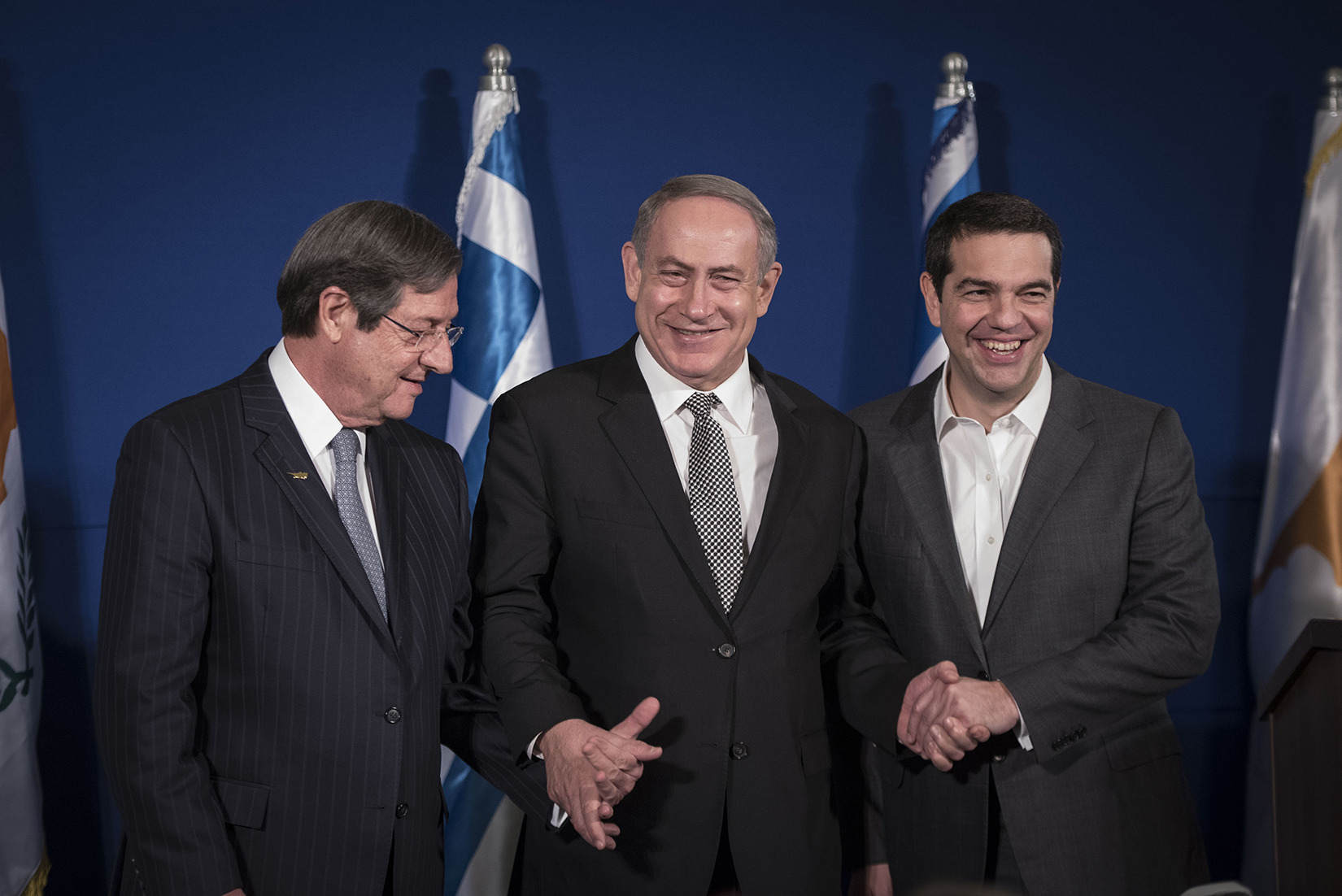
by Marie Shuqha
Prime Minister Benjamin Netanyahu, Cypriot President Nicos Anastasiades and Greek Prime Minister Alexis Tsipras held their second summit on Thursday, December 8th 2016, in Jerusalem, after having met in Nicosia this past January. Prime Minister Netanyahu also held separate meetings with each of the leaders.
The second trilateral meeting reflects the close and tightening relations between the countries.
Relations between the three countries are strategically important for strengthening stability and establishing a regular framework for countries with common interests. A trilateral research and development agreement on advancing joint projects were also signed.
The leaders agreed to hold their next meeting in Thessaloniki next year.
Prime Minister Netanyahu said that he welcomed the Prime Minister of Greece and the President of Cyprus, Alexis, Nicos back to Jerusalem and is looking forward to continuing our summits next year in Saloniki
“This is a meeting of genuine friendship. There are shared values between us. We are three democracies in the Eastern Mediterranean. We’ve come to the conclusion quite a few years ago that we have so much to gain by cooperating with each other and we’re doing that, point of fact, including with the new agreement we signed today. A few days ago we had the help of firefighters from Cyprus and from Greece. The Greek firefighters put out fires of Haifa. It should be understood that this was invaluable help from both of you, deeply appreciated and we respond. We reciprocate. When you had recent fires in Cyprus we sent our planes. This is a concrete example of how this cooperation actually saves lives. But it can go well beyond that.”
Furthermore they have discussed the formation of a regional emergency force, multinational force, which will be not merely coordinated in times of crisis, but will actually have a joint command center, will involve not only these three countries but more countries that will be brought in, plan the construction, plan the buildup of these forces for firefighting, earthquakes, floods, search and rescue.
They’re also dealing with matters of economy, with R&D, energy – which is a very big topic. There are gas fields, and they know how to explore the development of these gas fields and the provision of the gas to European markets which could make relations with Europe even better. Tourists might also help the economic development.
“There is a new development here. We have agreed to move forward on a multi-national, regional rescue and emergency services force, to be formed by our three countries – Israel, Greece and Cyprus. However, we would like to add other countries to the joint command center for emergencies such as fires, earthquakes, floods and others. We want to plan the structure of the force and share this mission among the various countries, which would greatly help security and assuring the lives of the citizens of all countries here in the region as well as in other countries.”
At the trilateral energy meeting between Israel, Cyprus and Greece, National Infrastructures, Energy and Water Minister Dr. Yuval Steinitz agreed with his counterparts that the three countries’ energy ministers would meet with the EU Energy Commissioner in order to advance the construction of the gas pipeline between Israel, Cyprus, Greece and Italy.



